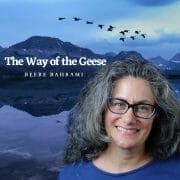Jean-Michel Cousteau: The Legacy of Exploration

A pioneer, explorer, and dedicated advocate for marine life, Jean-Michel Cousteau has spent a lifetime protecting the ocean and conserving marine life for generations to come.
An Interview with Jean-Michel Cousteau
His legacy of discovery and passion for conservation have inspired countless individuals around the world. It’s in his blood; his reputation and vast experience of 78 years of diving and exploration began a generation ago with his father, Jacques Cousteau, aboard Calypso and Alcyone.
OMTimes: Education has been a cornerstone of your outreach. What are the most vital lessons or experiences we should impart to the next generation to ensure they become proactive guardians of our oceans?
Jean-Michel Cousteau: Education Education Education!
“Protect The Ocean, And You Protect Yourself” is my motto. With over 60 years of experience, We’ve developed programs that immerse individuals in nature. Today, I can confidently say that these programs inspire people to protect what they cherish. I’ve introduced programs like Ambassadors, Catalina Environmental Leadership Program, and Family Camp, all of which have made a significant impact in promoting environmental protection and responsibility.
My flagship program, Ambassadors of the Environment, has been widely recognized for its dedication to connecting people of all ages with their natural and cultural surroundings. I firmly believe in the power of Education to inspire both the young and the old.
Over the years, I’ve reached tens of thousands of students, teachers, and families on land and at sea. In 2021, I introduced two innovative programs: the Alabama Gulf Shores Gulf Coast Center for Ecotourism & Sustainability and a program at The Ritz Carlton Maldives, Fari Islands. By 2022, I formed a collaboration in Maui, supporting a community initiative that merges traditional Hawaiian coastal stewardship with modern scientific approaches to address climate change and shoreline restoration. Environmental Education should emphasize responsible stewardship of our natural resources and teach sustainable living.
Our programs span the USA in California, Alabama, Maui, and Puerto Rico and internationally in places like Mexico, the Cayman Islands, and the Maldives Islands. Funding has always been crucial for introducing new programs.
My initiative, Sustainable Reefs, also offers environmental educational resources such as teacher curriculum guidebooks, a coral reef video featuring local celebrities, and cartoon books in local languages. These resources are aimed at coastal and island nations where coral reefs face threats. My efforts have received endorsements from the United Nations Small Island Developing States-SIDS, UNESCO, UNEP, and the International Coral Reef Action Network-ICRAN.
So far, these resources have been implemented in the British Virgin Islands and American Samoa and are expanding in French Polynesia. Again, funding remains pivotal for introducing new programs.
OMTimes: Building upon the legacy of your father, Jacques Cousteau, how do you envision the Future of ocean exploration, and what role do you see technology playing in this evolution? With the rapid advancements in marine technology and deep-sea exploration, what are some innovations you’re most excited about, and how do you believe they’ll shape the Future of oceanic research?
Jean-Michel Cousteau: We are at the forefront of the Global Ocean Network (GON), an ambitious and revolutionary communications project dedicated to ensuring our global oceans’ long-term sustainability and health. Our vision is to inspire a new ocean ethic, constantly monitoring the heartbeat of the sea using the latest technologies designed for unparalleled exploration of the least known Environment on our planet: the Ocean.
My interactive communication collaboration involves a network of expedition vessels equipped with energy-efficient turbo sails and solar power, satellites, sensors, handled floating buoys, and underwater habitats. These tools allow me to transmit LIVE globally, reaching every home, educational center, museum, and scientific institution. By collaborating with NGOs, corporations, industries, governments, and scientific institutions, I aim to provide firsthand, cutting-edge information that will shape new generations into Global Ocean Network Ambassadors. Drawing from the Cousteau family tradition’s unique perspective, I use this information to inform, inspire, and advocate. My vision for GON is to represent the Ocean as a system without borders, emphasizing environmentally scientific and sustainable principles for ocean conservation. I’m proud to say that the conceptual designs for this vision are already complete.
OMTimes: Your work in film and media has been extensive and influential. Given your experience in film production, how do you believe the medium has evolved in its ability to convey the urgency of marine conservation, especially in the age of digital streaming and social media?
Jean-Michel Cousteau: In this era where 8 billion lives are intertwined by the groundbreaking communication revolution of the 21st century, I find myself deeply connected to my family’s legacy. Reflecting on my 78 years of diving experiences, I am thrilled to announce that the Ocean Futures Society is set to launch a new TV series titled “Jean-Michel Cousteau’s 78 Years of Diving & Discovery.”
The inaugural episode will spotlight the Pacific Ocean, presenting “A Great Message of Hope.” This episode will celebrate the awe-inspiring recovery of the Humpback Whales, a testament to nature’s resilience and the power of collective human effort. Moreover, it will champion the cause of protecting other endangered cetacean populations and the broader marine ecosystems they inhabit.
Our journey began in Maui between January and April 2023, where we were granted permission by NOAA, NMFS, and the State of Hawaii to film the majestic whales and playful dolphins using drones within the Hawaiian Islands Humpback Whale National Marine Sanctuary. It’s a poignant reminder that many of these magnificent creatures were on the brink of extinction just four decades ago. However, thanks to global awareness and public outcry, many whale populations are now on the path to recovery.
Today, we recognize and celebrate whales as magnificent creatures and vital “ecosystem engineers.” Their presence enhances the productivity of our oceans. The more whales we have, the more “whale fertilizer” gets released into the Ocean, boosting productivity. This, in turn, benefits fisheries and ensures a sustainable oxygen supply for all of us. The iron-rich feces of whales nourish phytoplankton and marine plants, which play a pivotal role in capturing carbon dioxide from the atmosphere through photosynthesis. In perspective, even a mere one percent increase in phytoplankton productivity can capture the CO2 equivalent of a staggering 2 billion trees.
Whales are not just creatures of beauty and wonder but guardians of our oceans. They play an irreplaceable role in mitigating the impacts of climate change and fostering resilience within marine ecosystems. As we embark on this new chapter with the Ocean Futures Society, we aim to amplify awareness and harness the potential of funding and sponsorship. Together, we can champion the cause of these ocean giants and the invaluable ecosystems they support.
OMTimes: From your perspective, what are the most pressing challenges facing our oceans in the next decade, and how can we best prepare to address them?
Jean-Michel Cousteau: The Future is in our hands. Our very existence hinges on the intricate tapestry of species and ecosystems that envelop our planet. In essence, diversity equates to stability. As we stand on the precipice of potential mass extinctions and grapple with the ramifications of climate change, scientists are sounding the alarm: we must shield at least 30 percent of our lands, rivers, lakes, wetlands, and oceans by 2030. Given that our current protective measures encompass only 17 percent of terrestrial regions and a scant 10 percent of our vast oceans, the path ahead is urgent and monumental.
The health of our oceans and, by extension, our planet teeters on the brink of uncertainty. Yet, in these challenges, I am buoyed by hope. In my eyes, the remedies are straightforward—cherish, safeguard, and rejuvenate pivotal coastal and marine realms. We must champion the cornerstone species that underpin the equilibrium of these ecosystems and recognize their intrinsic worth, not only as sanctuaries for biodiversity but also as reservoirs of blue carbon.
Our collective endeavor should be to harmonize our existence with the rhythms of nature, all while championing the principles of social justice for every individual. Environmental justice is inextricably linked to social equity. It embodies the ethos that every individual and community, irrespective of race, gender, origin, or economic status, deserves equitable treatment and active participation in the formulation, execution, and oversight of environmental norms, regulations, and policies.
OMTimes: Throughout your decades of work in ocean conservation, what have been some of the most challenging moments or revelations you’ve faced? On the other hand, what developments or experiences have given you the most hope for the Future of our oceans?
Jean-Michel Cousteau: Protecting The Ocean, our planet’s life-support system, and the vital living force stabilizing global climate. I’ve never been more hopeful for the Future of our Ocean. More and more people are advocating for immediate climate action to protect each other and our Oceans.
We’re embarking on critical work to include more diverse voices and viewpoints in conservation. And we are witnesses to a generation of young people who are rising up to fight to live in a sustainable, just, and equitable world.
OMTimes: In your interactions with policymakers and business leaders, how do you navigate the delicate balance between economic development and the imperative of marine conservation?
Jean-Michel Cousteau: Diplomacy. Whenever I’m tempted to point a finger, I remind myself that three fingers point back at me. It’s a principle I’ve held close to my core, recognizing that every individual has a heart, and it’s through Education that we ignite the passion to safeguard what we cherish. At the center of the Ocean Futures Society lies a dual mission: to enlighten and inspire the youth and to educate and sway the decision-makers in both the corporate world and government.
I want to assure you that my unwavering commitment, cultivated over a lifetime, to preserving the Ocean remains steadfast. Whether it’s grassroots initiatives or engagements with the upper echelons of government and business sectors, my resolve is to ensure that we continue to protect and enhance the quality of life for future generations.
OMTimes: You’ve documented numerous stories of change and hope throughout your career. Are there any specific stories that have deeply affected you or altered your approach to conservation?
Jean-Michel Cousteau: Since I was first thrown “overboard” by my father, Jacques Cousteau, at the age of seven with newly invented SCUBA gear on my back, I have been mesmerized by the incredible life he’s seen under the sea’s surface. Throughout the years, my father has been sharing his love of the Ocean and the underwater realm, inspiring people of all nations and all ages to protect the Ocean and our water planet.
On Earth Day 1997, I led the exciting First undersea Live interactive video chat on Microsoft Internet from the coral reefs of Fiji, celebrating the International Year of the Reef and answering questions from “armchair divers ” worldwide.
In 1998, I was thrilled to participate in the First live downlink from the Space Shuttle Columbia to CNN, highlighting the International Year of the Ocean and discussing NASA’s contribution to ocean awareness with astronaut and marine biologist Rick Linnehan.
In 1998, I received The Environmental Hero Award from the Clinton Administration, presented by Vice-President Al Gore at the White House National Oceans Conference in Monterey, California.
In 1999, I was asked to join forces to pioneer the first-ever attempt to rehabilitate a captive Orca, Keiko, the star of the “Free Willy” film, and return him to his ocean home in Iceland. Attempting something that had never been done, working together with Keiko, learning firsthand, and documenting all of Keiko’s challenges and accomplishments. Ocean Futures Society’s team pioneered both husbandry techniques and scientific research on wild orcas. In 2002, Keiko became the First captive Orca whale to ever be rehabilitated and released into the wild. Entrusted to the Humane Society in 2003 for continued long-term care and monitoring, Keiko passed away in December from a pneumonia-like virus along the coast of Norway.
In February 2002, I was honored to become the First person to represent the Environment in an Opening Ceremony of the Olympic Games in Salt Lake City, joining luminaries including Archbishop Desmond Tutu (Africa), John Glenn (The Americas), Kazuyoshi Funaki (Asia), Lech Walesa (Europe), Cathy Freeman (Oceania), Jean-Claude Killy (Sport), and Steven Spielberg (Culture). Jean-Michel was also appointed to the Board of Directors of the Athens Environmental Foundation for the Athens 2004 Olympic Games, mandated to design and support projects that will improve the Environment in Greece and beyond.
In 2006, the initiative to protect the Northwest Hawaiian Islands took me and PBS to The White House, where we premiered the First PBS KQED-Ocean Futures Society documentary Jean-Michel Cousteau’s Ocean Adventure Voyage to Kure at the White House for President George W. Bush and Mrs. Bush and guests. The President was inspired to declare the 1,200-mile chain of islands a Marine National Monument, Papahanaumokuakea, at that time the largest marine protected area in the world.
My experience with my family’s long history of innovation inspired my advanced Education with a long history of innovative design in architecture and the Ocean. Acting on a childhood dream to build cities under the sea, I pursued a degree in architecture from the Paris School of Architecture. Today, I remain a member of the Ordre National des Architectes. Some of my projects include artificial floating islands, schools, and an advanced marine studies center in Marseilles, France.
The design and development of the Parc Oceanique Cousteau in Paris was an innovative public attraction to teach visitors about the Ocean without displaying any captive animals. This was the first complex architecturally designed Oceanographic educational Aquarium without water or marine mammals.
In 1969, leading the transformation of a 100,000-square-foot section of the Queen Mary into the Living Sea Museum in Long Beach, California, brought me to live in California.
In 1989-1994, my team and I brought Project Ocean Search, one of the First outdoor environmental educational programs for the public, to Savusavu, Fiji. In 1995, I co-founded the Jean-Michel Cousteau Fiji Islands Resort, an environmentally and culturally oriented family resort conceived as a global model proving the economic benefits of environmental concern and design to the business community. To expand the impact of ecological tourism, he created L’Eventure Jean-Michel Cousteau, his flagship dive operation at the resort in Fiji.
OMTimes: Given your unique position as the son of the legendary Jacques Cousteau, how do you see the evolution of ocean exploration and conservation from your father’s era to now? In what ways has the narrative changed, and how Ocean Futures Society contributed to shaping this new narrative?
Jean-Michel Cousteau: My father was a French Naval officer in Toulon, where he served on the Condorcet. Cousteau carried out his first underwater experiments thanks to his friend Philippe Tailliez, who, in 1936, lent him some Fernez underwater goggles, predecessors of modern swimming goggles. He belonged to the information service of the French Navy and was sent on missions to Shanghai and Japan (1935–1938) and to the USSR (1939). However, an automobile accident, which broke both his arms, cut short his career in naval aviation. The accident forced him to change his plans to become a maritime pilot, so he was immersed in his passion for the Ocean, which ultimately helped heal his injuries.
My father co-invented the first successful open-circuit self-contained underwater breathing apparatus (“SCUBA”), called the Aqua-Lung, which assisted him in producing some of the first underwater documentaries. From 1943-the 1970s was all about research and development of innovative underwater diving equipment, including underwater cameras, exploration, and discovery.
On July 12, 1937, he married my mother, Simone Melchior, his wife, mother of his firstborn sons, and life-long partner. Calypso was her home. She lived onboard more than my father, me, and brother. All the Men of Calypso were her sons and called her La Berger, The Shepherdess.
In 1943, my mother and I, with my younger brother, were the first women and young boys to scuba dive.
OMTimes: You’ve engaged with grassroots activists and global leaders in your efforts. How do you see the interplay between local, on-the-ground initiatives and broader, international policies driving effective ocean conservation? The worldwide public of a free society can drive international policies demanding ocean protection. In the face of adversity, the human species is a remarkable adapter. When confronted with issues of urgency, we mobilize rapidly to overcome challenges.
Jean-Michel Cousteau: Many outstanding organizations are making huge strides in conservation and protecting our planet for the rights of future generations. Here are a few:
Julie Packard: The Monterey Aquarium, NOAA, Mission Blue’s Hope Spots, Marine Protected Areas, The National Marine Sanctuary Foundation, Nature Conservancy, Natural Resources Defense Council, The Sierra Club, and many more.
H.S.H. Prince Albert II of Monaco is one of the world’s leading philanthropists dedicated to ocean conservation and sustainability. Over the last 15 years, the Prince Albert II of Monaco Foundation has invested nearly $99 million to fund almost 700 projects that focus on limiting the effects of climate change, promoting renewable energies, preserving biodiversity, managing water resources, and combating desertification. Prince Albert discusses prioritizing global collaboration – from government to civil society, philanthropists to the private sector – reconciling an international non-profit organization committed to progressing Planetary Health for present and future generations.
Jean-Michel Cousteau has both created and been recognized for many “Firsts” in various endeavors, from a lifetime of achievements to exemplary public service in ocean conservation through Education, awareness, and diplomacy. His lifetime of achievements and exemplary public service in ocean conservation through Education, awareness, and diplomacy was honored with the highest French civilian order of distinction, the Chevalier de la Légion D’Honneur, Knight of the Legion of Honor from the President of France, François Hollande in May 2016.
The Bacara is proud and excited to Host Jean-Michel Cousteau’s 78 Years of Diving & Discovery Gala and Weekend Festivities with Proceeds Benefiting The Ocean Futures Society, November 10 – November 12, 2023. On the evening of Saturday, November 11, celebrate Jean-Michel Cousteau’s lifetime achievements with his personal premiere of an original multimedia presentation featuring acclaimed historic & never before publicly shown film footage. Dance the night away, indulge in culinary excellence, and immerse yourself in this truly transformative gala experience.
November 10th – 12th, 2023.
Weekend highlight events all taking place at The Ritz-Carlton-Bacara, Santa Barbara: Friday, November 10 Welcome Reception with Jean-Michel Cousteau and Celebration of Whales art exhibit
Saturday, November 11
A Morning with Jean-Michel Cousteau & Ambassadors Eco Hike & Breakfast. Jean-Michel Cousteau 78 Years of Diving & Discovery Gala Premiere film with acclaimed historic & never before publicly shown film footage. Presentation of A Lifetime Achievement Award. Sunday, November 12: Ocean Discovery Cruise on the Condor Express with Jean-Michel Cousteau
Readers can purchase tickets HERE.
OMTimes is the premier Spiritually Conscious Magazine. Follow Us On Facebook, Twitter, Instagram, Linkedin, Pinterest, and Youtube
OMTimes Magazine is one of the leading on-line content providers of positivity, wellness and personal empowerment. OMTimes Magazine - Co-Creating a More Conscious Reality











